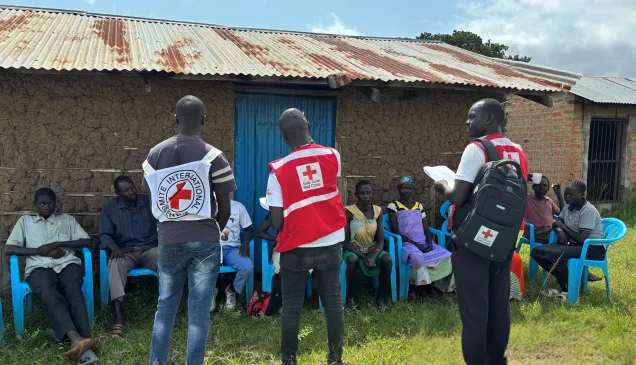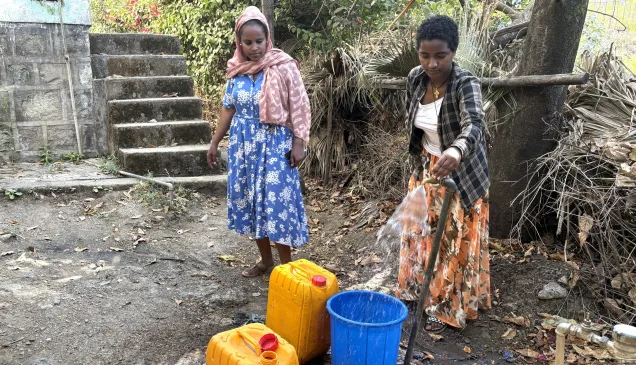Before starting their practical exercises, trainees receive a briefing from John Sorbo, the ICRC’s regional weapon contamination manager.
“There is no room for error”: Training on safe disposal of explosive ordnances in Ethiopia
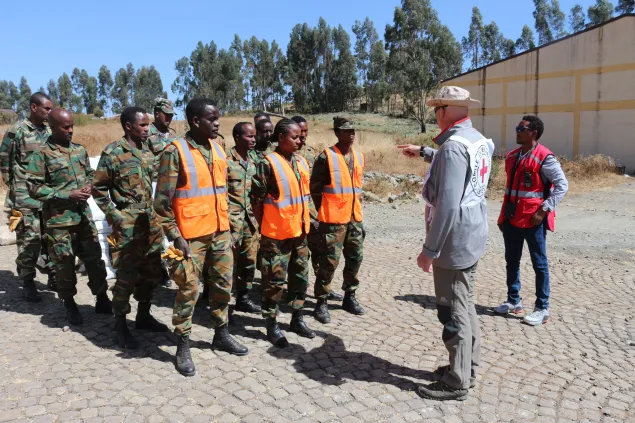
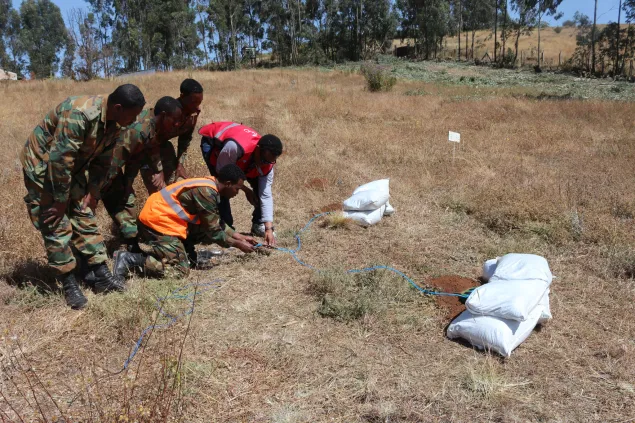
Trainees rehearse electrical demolition with learning aids. The one-month training first provided participants with theoretical knowledge, which was then followed with hands-on practice.
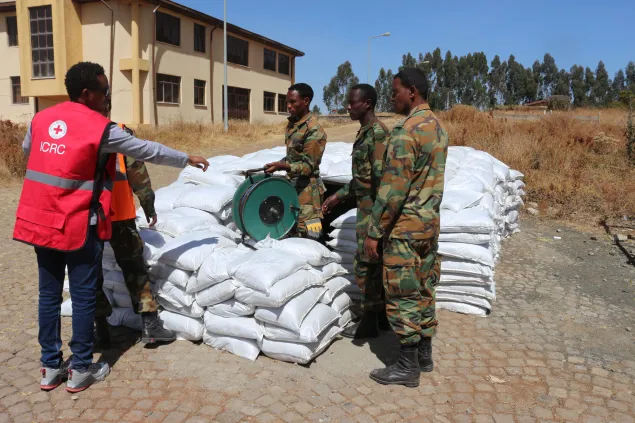
The trainees check the firing cable used to initiate electrical demolition.
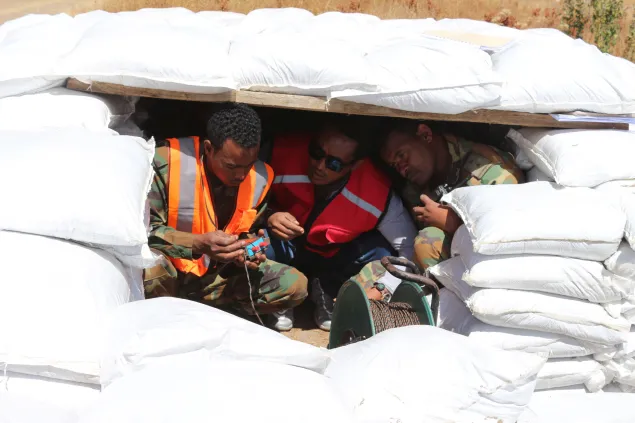
The trainees learn how to connect an electric firing cable to the exploder inside the firing control point, the area where technicians initiate the detonation of the exploded ordnance from a safe distance.
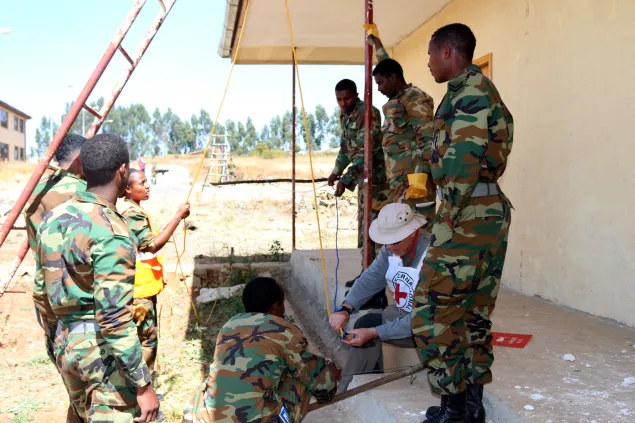
John Sorbo shows trainees “hook and line” procedures, which are used by EOD technicians to prevent damage to the surrounding area as a result of an uncontrolled demolition.
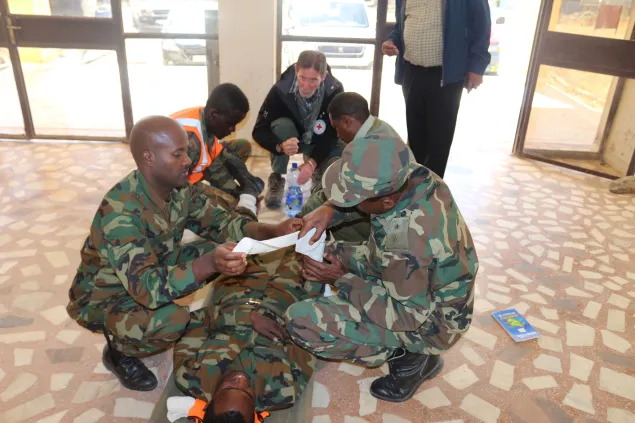
Students practice first aid and basic life support skills.
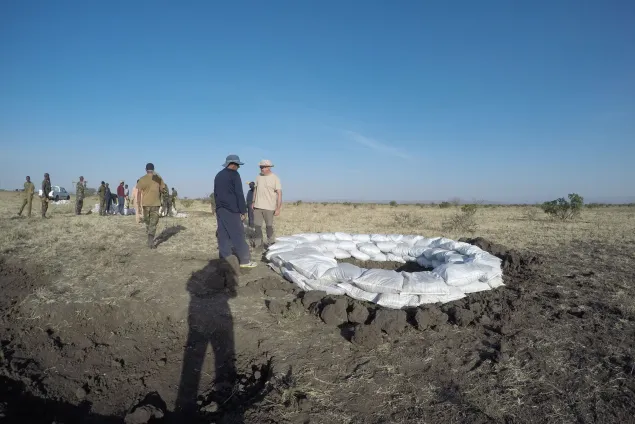
Participants inspect the demolition pit where the ordnances are placed prior to detonation.
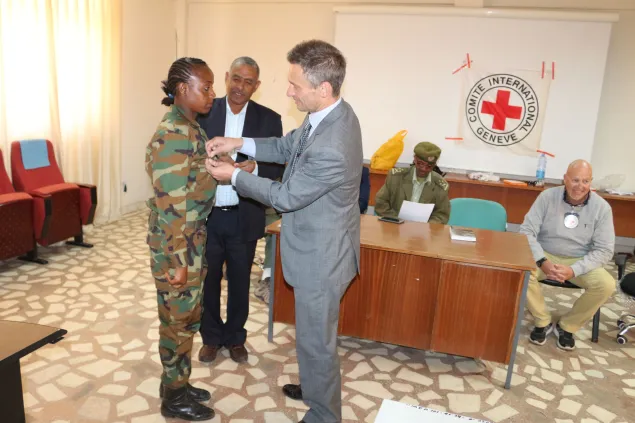
The ICRC head of delegation in Ethiopia presents a trainee with an explosive ordnance disposal badge, which symbolises she is now a qualified EOD technician
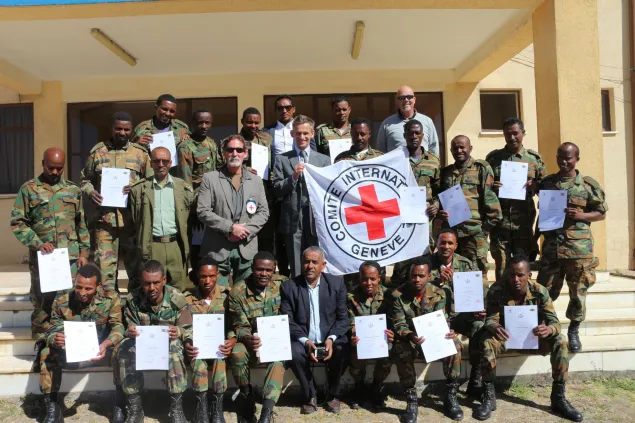
The trainees, along the ICRC training staff, pose for a photograph after their graduation.
Unexploded mines, grenades, shells, and other explosive devices can last for years – even decades – after armed conflicts come to an end. These dangerous remnants of war can inflict serious injury or death on civilians if they are not properly disposed of – a procedure which can only be done by technicians trained to render the explosive ordnance safe without putting additional lives at risk in the process.
Ethiopia has been contaminated with landmines due to conflicts dating back to the 1930s. Late last year, the ICRC, together with the Ethiopian National Defence Force (ENDF), provided a one-month training on explosive ordnance disposal (EOD) to 22 technicians from ENDF's Combat Engineering Department.
"EOD is technically demanding and requires precision," said John Sorbo, the ICRC's regional weapon contamination manager. "There is no room for error. Any mistake could be fatal for the technician and anyone near the blast. Practical training is paramount, including detonation, so that EOD technicians can dispose of exploded ordnances safely and ultimately save lives."


